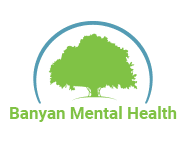Anxiety and Addiction Treatment
According to the National Institute on Mental Health, over 18% of adults suffer from some form of anxiety. This outranks any other kind of mental disorder and highlights the prevalence of these conditions in the lives of countless Americans. Sadly, mental health stigma makes it much more likely for people to self-medicate with drugs or alcohol. Doing so instead of pursuing professional treatment can result in even more issues than the person started with. Banyan Mental Health looks over the connections between anxiety and addiction and how a person should respond when suffering from them.
Is Anxiety a Disability?
Yes, several anxiety disorders are considered a disability. These can include phobias, obsessive-compulsive disorder (OCD), and panic disorders, among others. What is important to distinguish is how severely anxiety impacts a person’s ability to function throughout the day. Whether or not a person is eligible for disability assistance from the Social Security Administration (SSA) will also depend on this severity. In addition, concrete evidence - like documentation of consistent tests, treatments, and medical opinions - is often required to prove the severity.
The Connection Between Addiction and Anxiety
When someone is simultaneously diagnosed with a mental illness and addiction, this is referred to as a co-occurring disorder or dual diagnosis. Co-occurring disorders can be especially debilitating and hard to pick apart on one’s own. This is because it is often hard to distinguish which illness caused the other and vice versa.
That being said, there are certain instances or occurrences that can contribute to such a diagnosis, including:
-
Hereditary predisposition: Addiction is recognized as a family disease that can be passed on through relatives. If substance abuse is common in one family member, it is not unlikely that their children could be susceptible as well. The same goes for many anxiety disorders.
-
Biological factors: Both disorders can be related to a chemical imbalance in the brain. For instance, low levels of serotonin can be linked to these conditions. At the same time, persistent substance abuse can also result in the brain’s reward systems becoming warped.
-
Self-medication: Many people who fall into this cycle will fail to realize the negative effects that their habits have on them. Not consulting with a medical professional can spell trouble whether the substance is legally or illicitly obtained. There are also numerous illegal drugs that cause anxiety or at least exacerbate it.
-
Their daily level of stress: If someone is predisposed to anxiety, it is not uncommon that general mishaps throughout their day would have a more severe effect on them than on an average person. This leads to many instances of anxiety and substance abuse.
-
History of trauma: If someone has lived through a traumatic upbringing, they might be especially susceptible to repeating destructive cycles. Others will drink or use drugs to repress traumatic memories, intensifying their struggles and making it harder for them to move forward.
Banyan’s Dual Diagnosis Rehab Center Can Help
Anxiety and addiction recovery is possible with the right treatment. Banyan offers mental health care in Boca Raton that can aid patients in regaining control of their lives. With a variety of care levels at our disposal, we will do everything in our power to help you overcome your struggles. For those in need of more intensive treatment, our residential mental health program is a fantastic option.
To learn more about our options for mental illness treatment in Boca, contact our team of professionals at Banyan today.
Source




